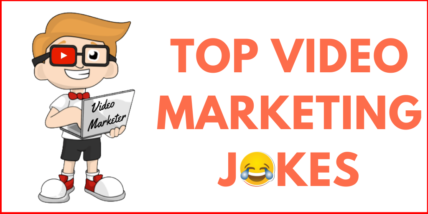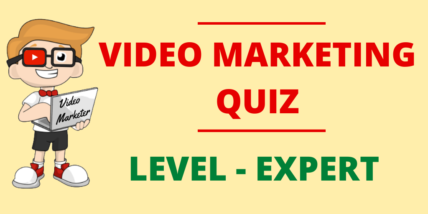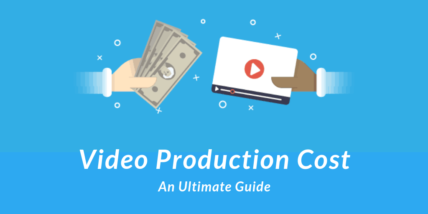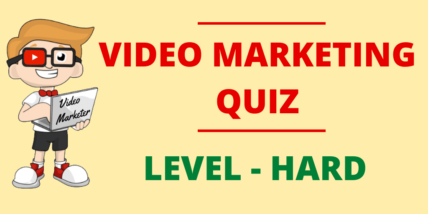“Be process driven, creativity is subjective. What I like you might hate and vice versa” – Gaurav Mehta
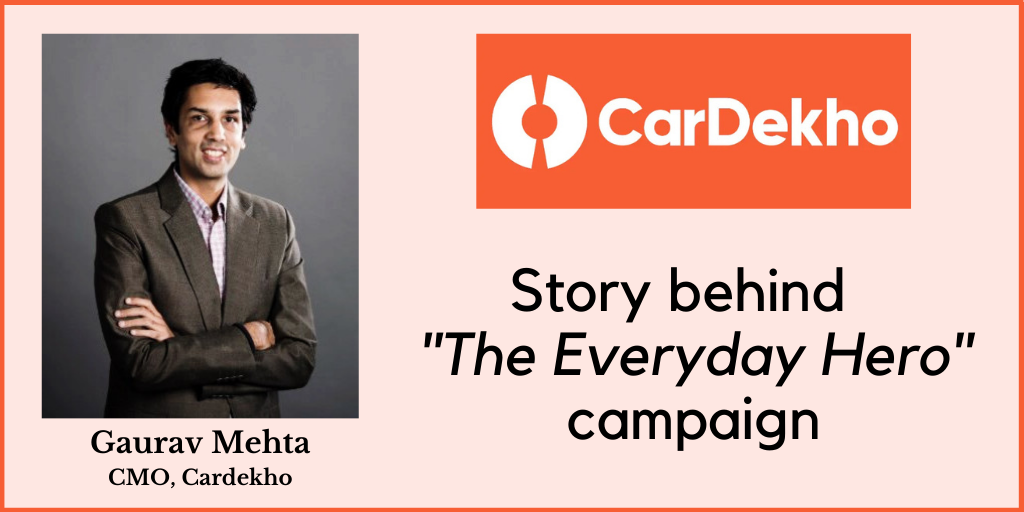
“The reason to buy a car has changed drastically. Earlier, maybe it was still an aspiration product but it’s on its way to becoming a functional product that keeps you in a trusted and safe environment. ” – Gaurav Mehta, Chief Marketing Officer at GirnarSoft (Cardekho, Gaadi.com, Zigwheels)
Cardekho’s latest “The Everyday Hero” video marketing campaign is inspired by a real life incident.
This slice-of-life ad is based on inspiring retired doctors, who are over 60 years old and still want to serve their doctor’s duties during the pandemic.
We talked to Gaurav who told us the story behind conceptualizing and executing the campaign.
Read on to know how they have changed their marketing communication, what impact Covid19 had on media distribution and more.
1. How exactly do you plan any ad campaign at Cardekho?
Automobiles are a high involvement purchase decision, so before putting some media weight behind an ad, it’s more about explaining to people why this product is good for them.
Buying a car or a bike is good for them, and it’s mostly related to what’s going on in their life in their immediate environment.
I think that educational relatability or awareness becomes very very important when it comes to high involvement purchase decisions like a car or two-wheeler
Then we try and see what the cultural insights are, and what societal insights might be inspiring for us to tell the story.
Check out these interesting Video Marketing Campaign Stories
2. How did you conceptualize the “Everyday Heroes” campaign?
“Everyday Heroes” – After the pandemic obviously people were more open to owning a car or a two-wheeler because of trust and safety issues.
And we saw that our traffic is at its all time highest right now with minimal marketing investments. So we understand that people are looking for this information, but a lot of those users are new to the internet.
They might not know how to navigate and make the best use of the options that are out there, which is why I think we understand whom we are talking to. And then we also understood that life has changed in the last six to seven months, how you used to buy a car.
The reason to buy a car has changed drastically. Earlier, maybe it was still an aspiration product but it’s on its way to becoming a functional product that keeps you in a trusted and safe environment.
So it’s not a luxury anymore, mobility is becoming a necessity, be that a two wheeler or a four wheeler. With that in mind, we understood that we couldn’t continue with, similar ways of marketing that we used to do earlier,
Now this idea came when Rajdeepak Das of Leo Burnett, narrated his father’s story, who is a retired doctor back in Orissa, and recently he said I’m going to go back and provide my services to people who need those, and obviously Raj, was a bit sceptical about it because his dad is over 60.
And his dad said I’m going and he did go. Dr Das is actually active now with his doctor’s duties, but it is up to Raj to actually make sure that he reaches the hospital or the clinic in a trusted manner, in a safe manner, which is the genesis of the story.
And if you look at the whole ad “Everyday Heroes”, that’s pretty much the entire story of a retired doctor rushing to go back.
We created a parallel campaign for Bikedekho as well., Two wheeler demand came back stronger because of rural India getting less impacted, government money was reaching rural India, good monsoon, etc.
So the rural economy kicks back faster than the urban economy, much earlier in July, August, and which is why we also launched our first campaign for Bikedekho.
And if you look at it, the storytelling format is a bit different but the insights are the same, every day the fear has given way to hope and the fact that we know how to fight it. We need to get on with our lives.
But the question was, how to do it in the safest and the most trusted manner possible.
3. As you said it was inspired by a real-life incident. Any other insights you had while planning the campaign?
So I think the fundamentals have not changed. We know that people want to trust it moreover to transportation. Like the Bikedekho campaign, I spoke to you.
There are a lot of similarities between Bikedekho and Cardekho. People are going to do their work but in their car or bike.
So if you look at both the campaign they’re having the same insight. The earlier car campaign was also based on the same insight, so insights have not changed, the narrative changed.
Once, when Raj narrated the story, and which is why insight is the same, and the narration is different.
This was the representation of the reality that we saw, either in Dr. Das’s life or in the other professionals and people who have been helping the country get back on its feet.
We just took inspiration from that and it’s very true, which is why it’s so relatable.
A viewer can’t say that it’s exaggerated. I think that’s because you stayed very close to reality. And that’s why this campaign has done so well for us.
Learn from Video Marketing experts
4. So, once you are done with any campaign, how do you launch it? Is there any checklist you follow?
I think before the script goes to production, there is research that happens on the script. What do people like, what are people understanding, and what people do not grasp that we want them to grasp? And this process helps us iron out all the potential flaws in the script.
And that’s the first part, what are people responding to, Do they like the humour or the thing that is not relatable?
And all these kinds of fixes are done in what we call the research stage.
A media buying ethos has always been driven by our own custom models that we make in tandem with TAM ratings, RAM ratings and the other ratings that any media planner has access to.
But we have our own custom econometric models to tell us what works for us and what doesn’t, and then we invest accordingly.
After merging both the voices of truth, we pick up the media.
Then the third piece is the seasonality or the timing of the campaign. We launched this campaign on 18 September, which is the end of Shraadhs. And that obviously kicks off the whole consumer purchase festive season, leading them to Dhanteras.
So we knew that the timing was also right, so these 2-3 things, getting the product right, and getting the customer support right, keep on happening in the background. from the time we start thinking about the campaign.
Youtube SEO: 10 Hacks you need to know
5. Has anything changed when it comes to distribution after the pandemic?
So, in the offline media, certain genres went up while many went down drastically.
For example:
Sports went down because there were no live sports so and so forth. Radio consumption went down because of cars not being on the road. The print went down because circulation was not happening.
A lot of people were disallowing newspapers. The impact of the outdoors went down because people were not on the road.
At the same time, certain genres have picked up a lot like infotainment picked up quite a bit, and the whole online OTT space boomed because people were consuming that a lot so that boomed a lot.
Social media consumption went to an all-time high. Gaming as a sector went out to an all-time high, so from a media placement perspective, picked up a lot. I think these are some of the changes that happened during the pandemic.
Check out – Top 25 Global Video Marketing Disruptors
6. What advice would you like to give to marketers on designing, conceptualizing, and strategizing ad film?
The first and foremost thing is, to think from a consumer’s perspective, what problem are you solving for that person.
As marketers, we just think that if we launch a new feature, a new product, it’s the best thing ever. And we just talk about it.
We spend a lot of marketing money behind it, without really doing the due diligence, whether it solves a real life problem for consumers or if that problem is big enough or not.
So I think the first thing is to think, about what you’re building, what you’re producing as a service or a product, and whether is it solving a real life problem for your consumer.
It can be big, it can be small. But then it’s a real life problem that you’re solving. If you start from there, then marketing is a pretty easy thing to do.
If you are asking the right questions, then a marketing campaign’s success probability is always higher.
Marketers also need to be curious, what worked earlier might not work today. And the same is the case with consumer behaviour, what worked earlier is not working today.
Like we had a campaign all ready to go in the month of March. But then, that’s not the campaign that we saw in September, because we knew that what we were going to talk about in March is not going to be relevant anymore. That’s not the problem we are solving. And then, which is why we went back to the drawing board and then we launched this campaign which is 180 degrees away from the March campaign.
The second thing is I think, to be process driven, creativity is subjective. What I like you might hate and vice versa. So it’s not like what he or she likes is the best thing ever.
Are you a video marketing expert? Take these quizzes
7. How are you making yourself redundant in the whole process, and making the process the champion?
As marketers, you’re responsible for a lot of money. And if you’re going to be investing through your gut or bias then a lot of failures are bound to happen,
Your gut or bias will be very very important because the experience is supercritical. But that’s not the only thing.
Another piece of advice I can give to marketers, be consumer-oriented rather than designation oriented.
Invitation to join Global Marketers Community Discussion Space
About Gaurav (in his own words)
I am the Chief Marketing and Content Officer for Cardekho Group, which includes Bikedekho as well.
I have been working for almost 18 and a half years. Past twelve and a half years I have been in digital businesses.
In 2008, I joined Yahoo, I was there for four and a half years and the stint taught me a lot. In 2013 Jan, I joined OLX, I was the Chief Marketing Officer of South Asia, OLX, I was there for four years, and helped create and establish their whole C2C industry.
And for the past almost four years I have been at Cardekho.. I’ve been an entrepreneur in the past and had my own branding and marketing consulting firm called Brand DNA. That is, way back in the past for three and a half years.
So these are the more notable milestones in the past 18 and a half years and I stay in Gurgaon.
Here are the Top 40 Video Production Companies in India
About Vidsaga
Vidsaga is a global marketplace for Organisations to create Videos. Consider it as “Upwork/ Fiverr for videos” with Creative script writing and professional project management.

